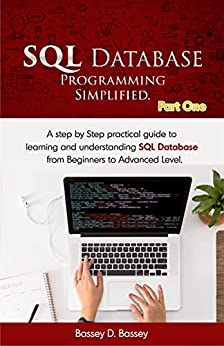English | 2021 | ASIN: B09HQV2Z3K | 310 pages | PDF | 1.79 MB
SQL (Structured Query Language) is a standardized programming language that's used to manage relational databases and perform various operations on the data in them. Initially created in the 1970s, SQL is regularly used not only by database administrators, but also by developers writing data integration scripts and data analysts looking to set up and run analytical queries.
The uses of SQL include modifying database table and index structures; adding, updating and deleting rows of data; and retrieving subsets of information from within a database for transaction processing and analytics applications. Queries and other SQL operations take the form of commands written as statements - commonly used SQL statements include select, add, insert, update, delete, create, alter and truncate.
SQL became the de facto standard programming language for relational databases after they emerged in the late 1970s and early 1980s. Also known as SQL databases, relational systems comprise a set of tables containing data in rows and columns. Each column in a table corresponds to a category of data - for example, customer name or address - while each row contains a data value for the intersecting column.
SQL standard and proprietary extensions
An official SQL standard was adopted by the American National Standards Institute (ANSI) in 1986 and then by the International Organization for Standardization, known as ISO, in 1987. More than a half-dozen joint updates to the standard have been released by the two standards development bodies since then; as of this writing, the most recent version is SQL:2011, approved that year.
Both proprietary and open source relational database management systems built around SQL are available for use by organizations. They include:
Microsoft SQL Server
Oracle Database
IBM DB2
SAP HANA
SAP Adaptive Server
MySQL (now owned by Oracle)
PostgreSQL
However, many of these database products support SQL with proprietary extensions to the standard language for procedural programming and other functions. For example, Microsoft offers a set of extensions called Transact-SQL (T-SQL), while Oracle's extended version of the standard is PL/SQL. As a result, the different variants of SQL offered by vendors aren't fully compatible with one another.
DOWNLOAD





 Reply With Quote
Reply With Quote
